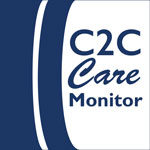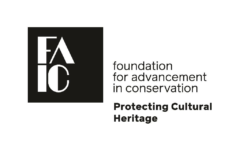On-line presence of Museums and photos
Tagged: Facebook, Flickr, online images
- This topic has 6 replies, 5 voices, and was last updated 6 years, 3 months ago by
 Rebecca Smyrl.
Rebecca Smyrl.
-
AuthorPosts
-
-
January 18, 2018 at 8:27 pm #137921
David C
ParticipantGreetings,
Our Historical Society has started a Facebook page. The moderator allows people to upload historical photos and “stories”. Once approved by the moderator the material is available for the public to see. I have a few concerns. Maybe someone can chime in.
1) When a photo appears, will someone presume we now own the photo?
2) Will people decide NOT donate their historical photos or artifacts to us if they can post a photo instead?
3) Will an on-line presentation of photos (and photos of artifacts) eventually diminish the need for people to visit a Museum ? Some people might be happy with looking at photos of artifacts from where ever rather than seeing the artifacts in person.I know times are changing, but I see an on-line presence as a slippery slope. There is a webinar about this topic, but I haven’t had time yet to watch it.
David Cranston, Curator
Hadley-Lake Luzerne Historical Society
52 Main Street
PO Box 275
Lake Luzerne, NY -
January 19, 2018 at 7:32 am #137925
Jeannie Whited
ParticipantDavid, I wish I had studies and numbers for you, and maybe someone does but it’s not me. The thinking is that online engagement actually increases the potential for someone to visit and/or donate to an organization. In any event, online engagement creates new relationships, and can strengthen extant ones. The idea is that someone, seeing an image, might think, “Wow, I’d like to see that myself!” It’s the same principle behind why people take their own photos of an object when there’s better ones online, or could buy a great shot on a cheap postcard. Seeing it with their own eyes makes it real and personal.
It’s also an opportunity to engage people who might never make it there physically. Think of it as a chance to broaden your potential donor and visitor pool. People love seeing “the real thing,” and you can play to that by linking stories and images to your collection.
The thing is, it does take work. Passively accepting images and stories is great, but not very engaging. Commenting back, relating it to your collections, that’s how you get people thinking they want to come visit. It’s work, but it can be fun, and the personal connection can be rewarding!
-
January 19, 2018 at 8:35 am #137926
David C
ParticipantJeannie – Thank you! The person who started our Facebook page said it would help “spread the word” about our organization. I agree with that. I just hope people do not think “I can stay home and look at photos on-line”. A Co-worker of mine has opted this year to stay home for their vacation, watch travel documentaries and old movies, and let the kids play on-line games for hours at a time. UGH!
What I’m probably most concerned about is someone might see a photo on our Facebook page, come to visit to see the actual photo, and find out it is not in our collection. When a photo is posted, perhaps the moderator or someone else will have to post comments and mention similar photos, stories, books and artifacts ARE in our collection… so please come and visit us today.
-
January 19, 2018 at 10:32 am #137928
Seana
ParticipantHello!
1) When a photo appears, will someone presume we now own the photo?
According to Facebook policies, it is Facebook who “owns” the photo until it is deleted by the original poster. If the photo is shared, then it becomes public domain. So if the person posting the photograph shares it, or one of your followers shares the photograph it becomes public domain. No one owns it anymore. It is a risk the original poster takes when posting a photograph. Quite frankly, it’s a risk we all take when using Facebook.
As for people not visiting your museum, I don’t think that is a risk. From personal experience, I love museum Facebook photos. It gets me interested in the museum, and excited to visit. You may want to continually advertise the hours of your archives for public consultation. People who come to the archives are going to visit the museum as well!
Shea
-
January 19, 2018 at 11:41 am #137929
Martha Grenzeback
ParticipantBesides people wanting to see the original, I find our digital collection encourages people to come to the library or to contact us to find out what OTHER photos or archival artifacts we might have. In addition, some people are also hopeful of finding more information about the topic represented by the item, or help with identifying similar items that they have. If they see a photo and want to use it for a publication or other purpose, they come to us for a high-resolution image. It has also encouraged a couple of people to donate photos or other items to us, since they can see we are making them available to the public. On the whole, I do think sharing images publicly benefits the library or museum.
Martha Grenzeback
Omaha PUblic Library -
January 19, 2018 at 6:04 pm #137931
David C
ParticipantThanks everyone. This is all new to our group so it will take some time. Of the 9 people on our Board, only 2 or 3 of us are Internet savvy. I think it will be a good move and it will work out okay.
By “owning” I meant owning the original photo that can be held in person. I’ll have our moderator look into their policies. While working as a database administrator for 20+ years (I still do), I have learned to be extremely cautious of posting photos on most Social Media websites.
David
-
January 19, 2018 at 7:00 pm #137932
 Rebecca SmyrlParticipant
Rebecca SmyrlParticipantHi David,
I think that Rachel Gonzalez’s article Keep the Conversation Going: How Museums Use Social Media to Engage the Public addresses your questions to some extent, and gives examples of both larger and smaller sized institutions using social media to further their missions. As Jeannie said above, active and strategic management of social media can bring great results, and create new avenues for you to get your message across to the public.
Thanks,
Rebecca
-
-
AuthorPosts
- The forum ‘Connecting to Collections Care Forum Archives – 2015 through 2018’ is closed to new topics and replies.




